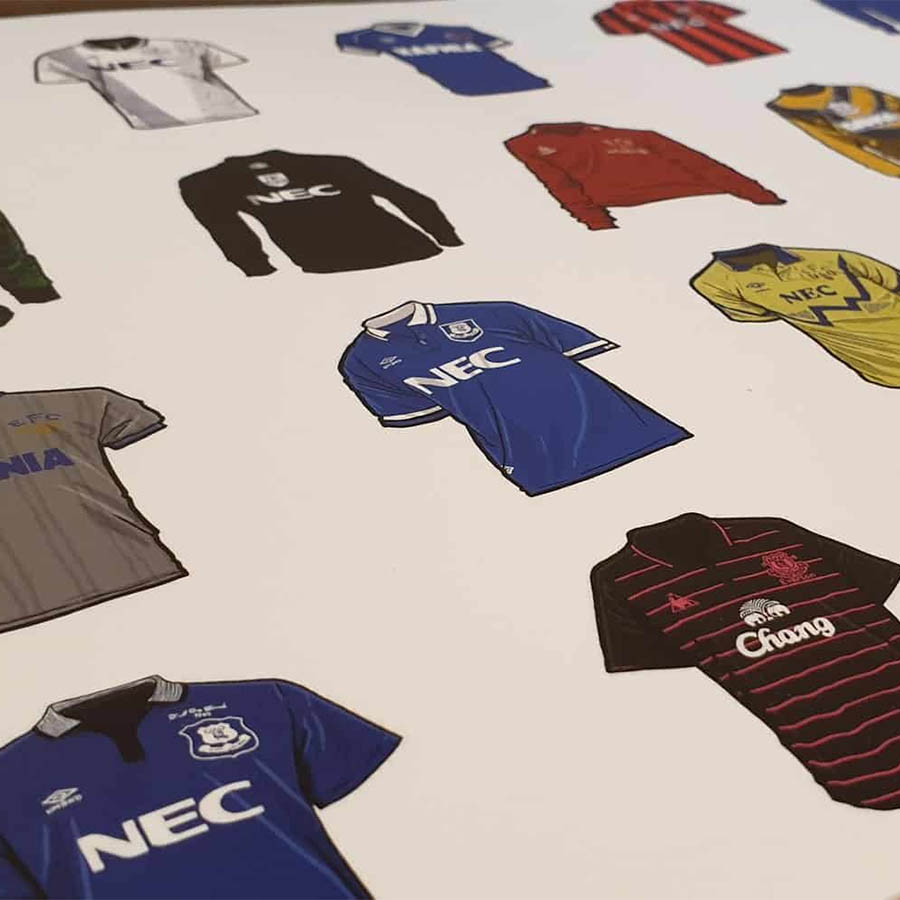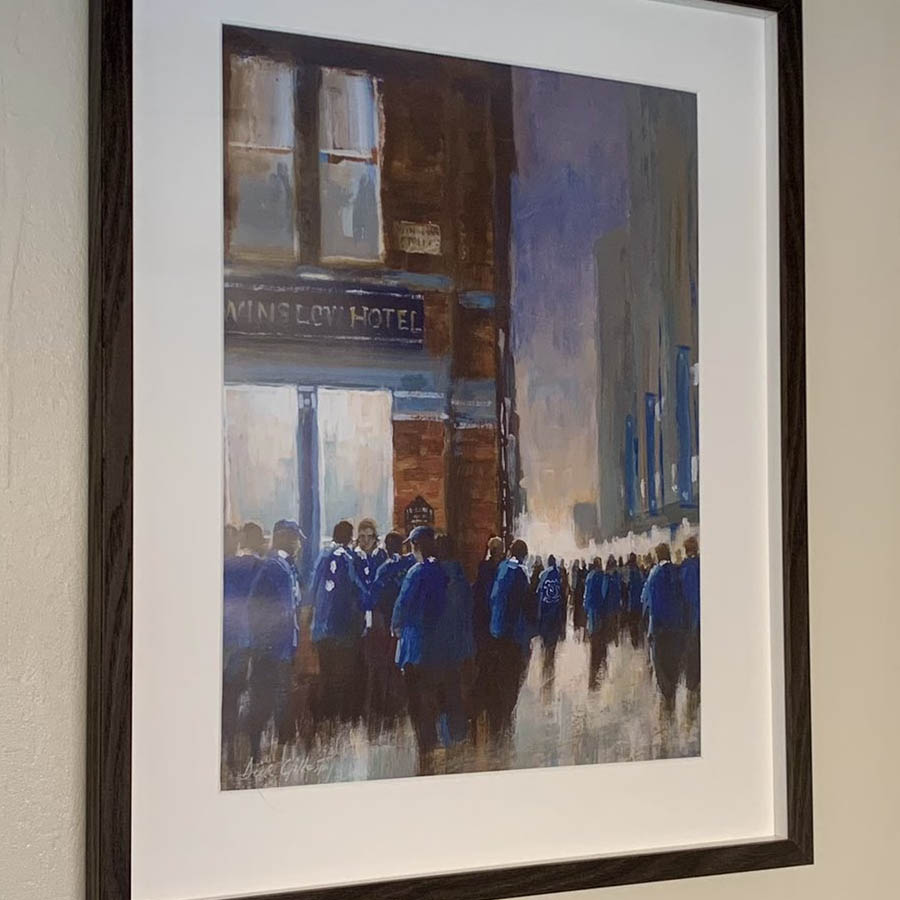http://www.espnfc.us/barclays-premi...ecome-more-important-than-the-football-itself
And so that's it, for another few months. How was transfer deadline day, summer 2014, for you? It may not have been a classic of the genre -- certainly not a patch on the market leader: that summer evening in 2008 that shall forever be known as Robinho Day -- but it ticked most of the boxes.
Manchester United, out of the blue, signed one of the finest players in the world, in Falcao; Arsenal required an extension to the 11 p.m. cut-off to complete the purchase of Danny Welbeck. At least two players -- Tom Cleverley and Fabio Borini -- priced themselves out of moves with exorbitant wage demands. These are crucial elements of any deadline day, the dramatic narratives that keep fans glued to television screens, radios and social media. It may have been a bit of a slow-burner, but it got there in the end.
Much the same could be said of the window as a whole. We have seen United and Arsenal embark on unprecedented spending sprees; we have seen the British transfer record broken [Angel Di Maria at 59.7 million pounds]; Liverpool's mass recruitment drive to replace Luis Suarez; Chelsea dismantling Atletico Madrid and showing why business is better done early. The Premier League clubs spent around 850 million pounds, when all is added up, smashing their previous best, the 630 million pounds invested last summer. It has been a summer full of intrigue, excitement and, most importantly, positively saturated with cash.
Writing in The Guardian this week, Barry Glendenning suggested that the transfer window now ranks as a sporting competition in its own right in England, and how their club fares in it ranks as more important to supporters than both of the domestic cup competitions. There is certainly an argument that transfer deadline day -- both in its summer and winter guises -- is more eagerly anticipated than FA Cup final day, the traditional marquee occasion of the English calendar.
That stands as a pretty powerful metaphor for modern football, for what it is about it that provides us with such enjoyment.
It has been a personal suspicion for some time that there are many who prefer the soap opera of the game to the sport itself, a belief borne out by website hit rates, which suggest transfer gossip attracts more attention than do descriptions of action. But while the transfer window is undoubtedly popular, there comes a point where what you like and what is good for you diverge. It is increasingly obvious that not only is there a need to overhaul the transfer window -- in such a way that deadline day may be lost forever -- but that, more complicated still, we as fans need to reassess our relationship with it.
Fixing the window
Let's start with the simple stuff. The transfer window should shut before the season starts. That is fairly obvious. If the whole transfer market can be boiled down into two months -- there was not always a transfer window, you know -- then it can be boiled down into one, too: July (at least in the leagues that run on the same calendar as Western Europe). That would allow managers to have their teams in place for at least some of preseason. That, surely, is in everyone's interests.
The issue of the deadline also needs to be addressed. Teams have eight weeks to sign players, so it is inexcusable to need more time at the very end of it to complete the minor details. If it is universally true that the task allotted will expand to fit the time available, then it is evident that teams -- like Arsenal and United -- leave things until beyond the last minute because they know they will be excused. Scrap the concept of an extension. Clubs should be able to do things in time. Take away the soft deadline and replace it with a hard cut-off and they will adapt.
More vexed is the issue of how we approach and interact with the transfer window. Transfer gossip has always been popular; sport sells papers and has continued to do so for years. In fact, we have a scrapbook at home filled with yellowing shards of local newspapers detailing the games my grandfather, Bernard Smith -- a defender of little or no repute for Coventry City and Birmingham City in the 1920s and 30s - played in. Alongside the match reports are snippets of transfer stories, written in broadly the same vernacular as they are today. Fans have always wanted to know how their teams would be strengthened.
The difference with today is not in the desire to see their team bolster its resources, but in the fetishisation of spending money. It is seen, certainly in the Premier League, as a sign of weakness if a manager has not lavished funds on new players. Impulse, not patience, is a virtue. Arsenal had enjoyed the costliest two months in their history even before the 16 million pound signing of Welbeck; Arsene Wenger still went in to deadline day under pressure to spend more, to acquire more. After saying that he didn't need to panic buy just because of Olivier Giroud's injury, he did, perhaps bowed by pressure from the stands at Leicester.
Whether Arsenal needed more players is immaterial. What is troubling is the way spending for the sake of spending -- as Wenger himself believes -- is demanded of clubs.
This is troubling because of the consequences it brings. It leads to a warped sense of priority, where your club's worth is measured, not on how many players it develops or its bond to its community, but on how much financial firepower it has. It has all but ended the concept of building a team, certainly among the elite clubs; buying one is seen as necessary and, to some extent, preferable.
It affects the development of players, not simply by blocking the pathway from the academy to the first-team, but by encouraging the disposal of anyone who is not perceived as the very best in their position. Players are written off as failures, stigmatised and scorned, long before they have had chance to develop (Welbeck being a fine example.)
That creates a climate of instability, of immediacy, that catches up with managers sooner or later. Just as there are demands to replace players as soon as something perceived to be better is available, so the time allotted to the men charged with directing them has been shredded. It even touches owners: a lack of immediate success and their custodianship is brought into question. It creates chaos.
Money being wasted
This, though, is not the most pressing reason to re-evaluate our delight in seeing hundreds of millions thrown around every six months, our pride in seeing how saturated with money the game has become, our desire to assess our merit in pounds and pence. The worst aspect of the demand for teams to spend money is that it encourages them to waste it.
If you are under pressure to buy, the likelihood is that your judgment will suffer. It is impossible to imagine that those deals concluded on deadline day have all been subject to the necessary due diligence, the research required to ensure that you are spending money on a substantial upgrade to what you have now. Still, why does that matter when, if the player does not work out, you can simply wait a year and go and buy another one?
Well, it matters because it sees vast sums of money seep out of the game to agents and middle-men -- the people who grease the wheels of any deal. It matters because it encourages poor scouting and poor recruitment, because we exist in a climate where the new is perceived as always being better than the old, where the exotic is morally superior to the familiar: Hull were widely acclaimed for signing Abel Hernandez for a record 10 million pounds. How many of those eulogising Steve Bruce's work watched much of Serie B last season? Not many, at a guess.
It matters because it opens clubs up to the risk of spending beyond their means, of becoming locked in a vortex where their debts and their wage bills are spiralling out of control. The ever-soaring television deals in England do not preclude clubs ever getting into trouble again, they simply increase the likelihood that when they do, the losses involved will be even greater.
Most of all, though, it matters because it is your money, and my money. Match-day revenue may not be as important to clubs as it once was, but three of the main revenue streams across the world remain tickets, television rights and merchandise. We buy the tickets, we buy the television subscriptions and we buy the shirts.
Sponsors sink millions into teams because they believe the association will increase their brand awareness and drive up sales, so to an extent that is our money, ultimately, too. It is one of the great myths of 21st Century capitalism that consumers are powerless. Nonsense. We have never had more clout.
And yet while we are paying for these purchases, we are encouraging clubs to waste our money, telling them not only that doing so is acceptable, it is their moral duty. We are enabling and financing this profligacy that is making our teams less familiar, less rooted. What do we get in return? At the top level, perhaps a slightly better calibre of player, sometimes. For the most part, nothing. Just a new face, the same as the old face, at an inflated cost. Ticket prices do not come down. Subscriptions do not come down. Shirts do not cost less. This is our money. We are allowing it to be thrown away.
Next year, then, perhaps we should not express our delight at seeing the one billion pound barrier broken for the first time. We should not marvel at the financial potency of the Premier League. Perhaps we should ask whether they have spent our money as they should have spent it. Perhaps we should ask what this frenzy of acquisition is doing for us.
And so that's it, for another few months. How was transfer deadline day, summer 2014, for you? It may not have been a classic of the genre -- certainly not a patch on the market leader: that summer evening in 2008 that shall forever be known as Robinho Day -- but it ticked most of the boxes.
Manchester United, out of the blue, signed one of the finest players in the world, in Falcao; Arsenal required an extension to the 11 p.m. cut-off to complete the purchase of Danny Welbeck. At least two players -- Tom Cleverley and Fabio Borini -- priced themselves out of moves with exorbitant wage demands. These are crucial elements of any deadline day, the dramatic narratives that keep fans glued to television screens, radios and social media. It may have been a bit of a slow-burner, but it got there in the end.
Much the same could be said of the window as a whole. We have seen United and Arsenal embark on unprecedented spending sprees; we have seen the British transfer record broken [Angel Di Maria at 59.7 million pounds]; Liverpool's mass recruitment drive to replace Luis Suarez; Chelsea dismantling Atletico Madrid and showing why business is better done early. The Premier League clubs spent around 850 million pounds, when all is added up, smashing their previous best, the 630 million pounds invested last summer. It has been a summer full of intrigue, excitement and, most importantly, positively saturated with cash.
Writing in The Guardian this week, Barry Glendenning suggested that the transfer window now ranks as a sporting competition in its own right in England, and how their club fares in it ranks as more important to supporters than both of the domestic cup competitions. There is certainly an argument that transfer deadline day -- both in its summer and winter guises -- is more eagerly anticipated than FA Cup final day, the traditional marquee occasion of the English calendar.
That stands as a pretty powerful metaphor for modern football, for what it is about it that provides us with such enjoyment.
It has been a personal suspicion for some time that there are many who prefer the soap opera of the game to the sport itself, a belief borne out by website hit rates, which suggest transfer gossip attracts more attention than do descriptions of action. But while the transfer window is undoubtedly popular, there comes a point where what you like and what is good for you diverge. It is increasingly obvious that not only is there a need to overhaul the transfer window -- in such a way that deadline day may be lost forever -- but that, more complicated still, we as fans need to reassess our relationship with it.
Fixing the window
Let's start with the simple stuff. The transfer window should shut before the season starts. That is fairly obvious. If the whole transfer market can be boiled down into two months -- there was not always a transfer window, you know -- then it can be boiled down into one, too: July (at least in the leagues that run on the same calendar as Western Europe). That would allow managers to have their teams in place for at least some of preseason. That, surely, is in everyone's interests.
The issue of the deadline also needs to be addressed. Teams have eight weeks to sign players, so it is inexcusable to need more time at the very end of it to complete the minor details. If it is universally true that the task allotted will expand to fit the time available, then it is evident that teams -- like Arsenal and United -- leave things until beyond the last minute because they know they will be excused. Scrap the concept of an extension. Clubs should be able to do things in time. Take away the soft deadline and replace it with a hard cut-off and they will adapt.
More vexed is the issue of how we approach and interact with the transfer window. Transfer gossip has always been popular; sport sells papers and has continued to do so for years. In fact, we have a scrapbook at home filled with yellowing shards of local newspapers detailing the games my grandfather, Bernard Smith -- a defender of little or no repute for Coventry City and Birmingham City in the 1920s and 30s - played in. Alongside the match reports are snippets of transfer stories, written in broadly the same vernacular as they are today. Fans have always wanted to know how their teams would be strengthened.
The difference with today is not in the desire to see their team bolster its resources, but in the fetishisation of spending money. It is seen, certainly in the Premier League, as a sign of weakness if a manager has not lavished funds on new players. Impulse, not patience, is a virtue. Arsenal had enjoyed the costliest two months in their history even before the 16 million pound signing of Welbeck; Arsene Wenger still went in to deadline day under pressure to spend more, to acquire more. After saying that he didn't need to panic buy just because of Olivier Giroud's injury, he did, perhaps bowed by pressure from the stands at Leicester.
Whether Arsenal needed more players is immaterial. What is troubling is the way spending for the sake of spending -- as Wenger himself believes -- is demanded of clubs.
This is troubling because of the consequences it brings. It leads to a warped sense of priority, where your club's worth is measured, not on how many players it develops or its bond to its community, but on how much financial firepower it has. It has all but ended the concept of building a team, certainly among the elite clubs; buying one is seen as necessary and, to some extent, preferable.
It affects the development of players, not simply by blocking the pathway from the academy to the first-team, but by encouraging the disposal of anyone who is not perceived as the very best in their position. Players are written off as failures, stigmatised and scorned, long before they have had chance to develop (Welbeck being a fine example.)
That creates a climate of instability, of immediacy, that catches up with managers sooner or later. Just as there are demands to replace players as soon as something perceived to be better is available, so the time allotted to the men charged with directing them has been shredded. It even touches owners: a lack of immediate success and their custodianship is brought into question. It creates chaos.
Money being wasted
This, though, is not the most pressing reason to re-evaluate our delight in seeing hundreds of millions thrown around every six months, our pride in seeing how saturated with money the game has become, our desire to assess our merit in pounds and pence. The worst aspect of the demand for teams to spend money is that it encourages them to waste it.
If you are under pressure to buy, the likelihood is that your judgment will suffer. It is impossible to imagine that those deals concluded on deadline day have all been subject to the necessary due diligence, the research required to ensure that you are spending money on a substantial upgrade to what you have now. Still, why does that matter when, if the player does not work out, you can simply wait a year and go and buy another one?
Well, it matters because it sees vast sums of money seep out of the game to agents and middle-men -- the people who grease the wheels of any deal. It matters because it encourages poor scouting and poor recruitment, because we exist in a climate where the new is perceived as always being better than the old, where the exotic is morally superior to the familiar: Hull were widely acclaimed for signing Abel Hernandez for a record 10 million pounds. How many of those eulogising Steve Bruce's work watched much of Serie B last season? Not many, at a guess.
It matters because it opens clubs up to the risk of spending beyond their means, of becoming locked in a vortex where their debts and their wage bills are spiralling out of control. The ever-soaring television deals in England do not preclude clubs ever getting into trouble again, they simply increase the likelihood that when they do, the losses involved will be even greater.
Most of all, though, it matters because it is your money, and my money. Match-day revenue may not be as important to clubs as it once was, but three of the main revenue streams across the world remain tickets, television rights and merchandise. We buy the tickets, we buy the television subscriptions and we buy the shirts.
Sponsors sink millions into teams because they believe the association will increase their brand awareness and drive up sales, so to an extent that is our money, ultimately, too. It is one of the great myths of 21st Century capitalism that consumers are powerless. Nonsense. We have never had more clout.
And yet while we are paying for these purchases, we are encouraging clubs to waste our money, telling them not only that doing so is acceptable, it is their moral duty. We are enabling and financing this profligacy that is making our teams less familiar, less rooted. What do we get in return? At the top level, perhaps a slightly better calibre of player, sometimes. For the most part, nothing. Just a new face, the same as the old face, at an inflated cost. Ticket prices do not come down. Subscriptions do not come down. Shirts do not cost less. This is our money. We are allowing it to be thrown away.
Next year, then, perhaps we should not express our delight at seeing the one billion pound barrier broken for the first time. We should not marvel at the financial potency of the Premier League. Perhaps we should ask whether they have spent our money as they should have spent it. Perhaps we should ask what this frenzy of acquisition is doing for us.


















